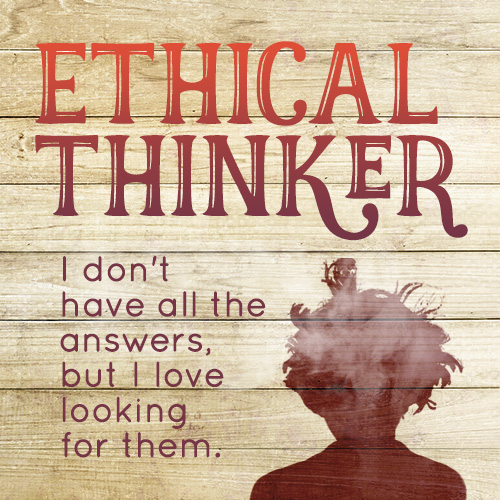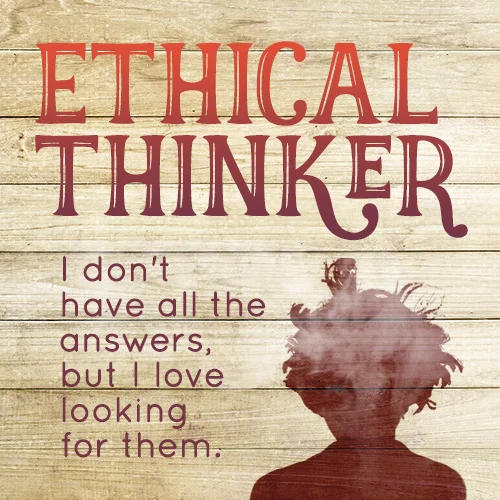In defense of aliases and anonymity
/In the early 1990s, I had just finished high school and was working at a summer camp where I met Jeff. After a day at camp, both back at our parents' homes, Jeff and I would talk on the phone. One night he asked me whether I had a modem. I wasn't entirely sure what that was, but next to the family computer was some device with a bunch of lights that my dad sometimes used to send data for work. It turns out it was a nice, shiny, 1200 baud modem that became my ticket to the online world.
Jeff walked me through the steps of dialing into his BBS, creating an account, and jumping into the discussions. "What do you want your handle to be?", he asked me. No one used their real names on a BBS. I needed a handle, an alias.
That was my introduction to the Montreal BBS scene of the 1990s. A BBS was a dial-up online bulletin board system where you could participate in group chats, personal chats, play games, and more. Kind of like facebook, but with fewer images, no ads and less invasion of your personal privacy.
I started hanging out on Jeff's board and then joined a few other friends' boards and then some friends of friends' boards. I even joined one of the coolest BBSes in Montreal, one run with an iron fist by one of the foremost geek girls in Montreal. She was an amazing moderator and was quick to ban anyone who caused trouble. I never met her IRL and I never knew her real name, but everyone in the BBS scene respected her. Her alias stood for a lot more than her last name ever could.
Names didn't matter then and, to a great extent, names don't matter now.
image credit: Voice of the Soul on flickr
Introduction by Google
Would you walk into a job interview for an engineering job and introduce yourself this way?
"My name is Jane. It is nice to meet you. I've written over 100 articles on breastfeeding a toddler, my dancing hamster video went viral and I'm really into BDSM."
Would you walk into your first parent-teacher interview with your child's teacher and say this?
"I'm Dexter's mom. I'm a recovering drug addict, I was quoted in Today's Parent about how horrible my child's last teacher was, and by the way I boycott the company that sells that water you're drinking."
What about your kids? Do you think they introduce themselves to new friends by saying this?
"My name is Mark. I was still wetting my bed when I was twelve, my mom ate her placenta, and here check out this album of pictures of me in the bath."
No. In real life, we keep people on a need to know basis.
There usually isn't anything wrong with anything in our past, but there is just a time and place to bring things up. We don't blurt out every detail of our lives the moment we meet someone.
We filter.
We share the relevant information.
"My name is Jane. It is nice to meet you. I have 10 years of experience working in electrical engineering in both an academic and applied setting. I'd love to tell you about the project I just finished and how the experience I gained there could benefit your team."
Ah, that's better.
Putting your name out there
"I feel like, if I can't say it with my name beside it, I shouldn't say it."
My friend Maureen Turner Rasmussen said this in the context of a facebook conversation about using pseudonyms online. She isn't the only one who feels this way. I've heard many people say this over the years and websites like facebook stipulate that people must use the same name they use in real life.
If you're a normal mainstream person, with normal mainstream children, and your online life is either boring or closely tied to your work, perhaps that works. But if you're weird, or you're an activist, or you're struggling with something and need support, then sometimes you can't or don't want to use your own name online.
Let's look at some examples that illustrate why:
- People struggling with mental health issues may want to write about it online or seek out support without telling their employer, their neighbours and every acquaintance about it.
- Feminist bloggers and reporters are constantly threatened with rape or with hurting their family members, including their children.
- Activists may feel it is important to speak out about an issue, but they worry it could affect their job, a family member's job, or their future career prospects. The decision to be "out" on the Internet as an activist, isn't just the activist's choice. It is a choice that needs to be made as a family because it can impact them all.
- Teachers, coaches, politicians, political staffers, police officers and other people who are in positions of public trust can have things they say or do online taken out of context very easily and used against them. Most teachers and police officers I know are on facebook with a real sounding fake name so that they can't be found. They have a right to privacy too and a right to not be stalked by the public that they serve.
- People may have a temporary situation that they can't tell others about yet, like an early pregnancy, job hunting in other cities, or preparing to ask a spouse for a divorce and may need to ask questions and seek out support discreetly.
- Parents may need support in handling challenging situations with their children (or other family members), but don't want to disrespect their child's right to privacy (in that moment or in terms of the tracks it will leave behind that could follow that child forever). I'm a member of a couple of facebook parenting groups that have thousands of members. I can't possibly know who is lurking in there and I would feel very exposed asking any type of support question in there under my real name.
As a bonus, you never know these days when something will go viral. I've met a number of people who became accidentally and suddenly famous for something they never intended to have define them.
In the age of the Internet, people who have a vast online presence are much more exposed than others. We all Google people before we meet them for a date, a meeting, or a job interview. It isn't just adults who do this. Children Google their teachers, their friends' parents, their neighbours, their coaches and more. I've learned things Googling people that they probably shouldn't have put out there and that they probably wish I didn't know.
Some people are an open book. The Internet knows a lot about them and they're okay with that (for now). Other people keep their online presence very limited and carefully curated. But what happens when you fall somewhere in between? What happens if you want to be active online, but still want to protect your privacy and choose who knows what about you? You use an alias, of course. But these days instead of aliases being the norm, they're considered weird and inauthentic.
Protection from the anonymous
People who are against online anonymity have reasons for wanting people to always use their real name. They feel like anonymity allows hateful trolls to say things they wouldn't say with their name attached to it. They feel like dangerous predators hide behind fake names and fake identities in order to take advantage of people. They worry there are people who are pretending to be something they are not.
I wish that a real names policy actually resolved those fears, but it doesn't.
Unless every website out there is going to require government issued photo ID to open an account (not likely to happen anytime soon), then people can be whoever they want to be online. People create fake personas all the time. Some of them do so maliciously and some do so just to protect their privacy. In fact, I'm sure there are people you know and trust who you think are using their real names when they are actually using a real-sounding pseudonym. Or they have their open, transparent and "authentic" profile, and then the private one where they say things they couldn't possibly say publicly. And finally there are even people who create fake personas in real life while using their real name (See Rachel Dolzeal or Franck Gervais).
Requiring real names on the Internet does nothing to protect us from malicious behaviour. It just gives us a false sense of trust.
Creating trust in an alias
How does knowing the name on someone's birth certificate or driver's licence (or thinking that you do) make them any more credible than someone whose real name you do not know?
From the early days of Montreal BBSes to the message boards of the 2000s to the blogs and social media platforms of today, I've developed trust relationships with people whose real names I do not know. Their opinions are not less valid because I don't know their last name. Their friendship isn't less important because I haven't sat in their living room and met their husband or wife. When I do sometimes learn someone's real name, that doesn't suddenly change things in a monumental way. I come to trust people online in the same way that I come to trust people in real life -- by observing the way that they act and interact and by listening to what they have to say, not by checking their ID.
What I do online is a sideline. It isn't what pays the bills. It can be fun and meaningful, but it isn't ever worth risking my career or my family's safety or privacy. I'll tell people my real name on a need-to-know basis, but I've never felt the need to have it plastered across my blog in order to be more authentic.
Some people may come to a point where they feel their alias is no longer needed and they're ready to share their identity with the world. My friends Elan and Dresden each did that. But deciding the opposite is impossible.
Once someone threatens to rape you, once someone chooses not to interview you for a job, once someone threatens or mocks your child, once a creepy person shows up at your workplace or calls your home, once your spouse gets fired from their job, once your employer gets criticized. Once any of these things happens because of something you said online, you can't take your identity back.
The Internet is forever.


